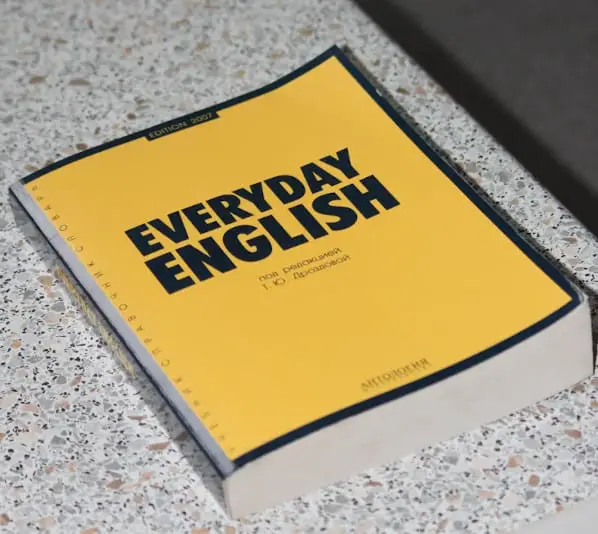Time and time again, I find my students are drawn to producing long, complex sentences. Often, this is encouraged through the English education they received in school.
The problem with long sentences is that the longer the sentence becomes, the more difficult it becomes to read. Your writing in English should be clear and concise. This allows readers to easily follow your ideas. Learn how to compact your writing for your audience to maximize readability.
Keep your audience in mind.
Your first concern when writing should be, “Who will read this?”
You will write differently when writing an essay for school than you would writing a text message to your friend, but in both situations you want the reader to understand your writing clearly.
This is why word choice is so important. You should be considering the types of words you will include in your writing before thinking about the ideal sentence length.
It can be alluring to include that new, fancy word you learned while reading your favourite author, but doing so may actively work against the clarity of your writing.
Be clear.
Your best defense against confusing writing is to use plain English. Writing to be understood is a more powerful skill than writing to impress is. The impact of what you write should come from the ideas themselves and not the words you express them in. Let’s take a look at an example:
The insouciant feline scoured the expanse for lackadaisical vermin.
What?
There are probably a few words in there that you have never seen before. The choice of words for that sentence has turned a simple idea into a complex mess. Let’s look at that in plain English:
The carefree cat searched the room for a careless mouse.
Oh! Okay!
This sentence is clear and easy to understand. Writing like this creates a collaborative environment for the reader. Remember, you want to be understood by your audience. You don’t want to confuse them.
There’s a time and a place for using words like these in writing. Such as, during the aptly named creative writing. While you’re writing for pleasure, you can get as crazy and wild with your word choice as you like.
However, in most cases, you want to stick to plain, common, everyday English words. This maximizes your reach and allows what you’ve written to be understood by the greatest number of people with the least amount of confusion.
Be concise.
Writing concisely goes hand in hand with writing clearly. You do not want to clutter your writing with unnecessary words. This equally adds to reader confusion because it makes the passage dense and hard to pick apart.
Considering you took the time to write something, you want the reader to read it, right? This won’t happen if you make your writing unnecessarily confusing. Readers will become tired and give up before they reach the end of your passage.
This type of wordiness actively works against your goal of being clearly understood.
Let’s look at some examples of wordiness, and what we can do about them.
I took a long, meandering stroll to the supermarket by way of foot. I quickly stopped at the 7-11 convenience store on my way to the supermarket because I wanted a cool, refreshing drink. When I finally arrived after 10 minutes, I went to procure some delicious, healthy vegetables and nutritious fruits. However, I was utterly dismayed and aghast to find that the produce was rank and rancid! After all that, I returned to my abode empty-handed with nothing.
Yikes!
Similar to the example above, this paragraph is difficult to read. The sentence structure is thick and hard to pick apart. The writer repeats themselves frequently and uses fancy words instead of simple words.
Let’s fix this up for them:
I took a long stroll to the supermarket today. I stopped at the 7-11 on my way there because I wanted a refreshing drink. When I arrived after 10 minutes, I wanted to buy some healthy fruits and vegetables, but I was shocked to find they were spoiled! In the end, I went home empty-handed.
Much better!
This is much easier to follow and understand. The reader is still able to show off their vocabulary without using overly difficult words and wordy sentences.
The goal isn’t to dumb down your writing; the goal is to make your writing more clear.
You do this by consolidating your sentences, and cutting down on the amount of redundant words you’re using.
What about word count?
Very often, you will be in a situation where you need to write a certain number of words. Such as during the IELTS writing module, where your goal is to write 150 words for part 1 and 250 words for part 2.
You might feel compelled to write wordy sentences and use fancy words during these times, but even here you should exercise caution and remember to write clearly and concisely.
Word counts can be a pain because they place arbitrary limits on the amount of words we must use. Instead of piling as many words as possible into a sentence and twisting it into a confusing mess, are there any strategies we can keep in mind to maximize the amount we write?
You bet there is!
What else can you say?
When you are answering a question, or when you are telling a story. There is an easy way available for you to expand your answer. Using these ideas will provide vital information that enhances the content of your writing. They’re known as the 5Ws + H.
- Who
- Who is it about?
- What
- What happened?
- Where
- Where did it happen?
- When
- When did it happen?
- Why
- Why did it happen?
- How
- How did it happen?
To be a clear and engaging piece of writing, whatever you produce should answer all of these questions. Sometimes, you won’t be able to answer every one of these questions. However, when you are writing, you should always keep them in your mind and try your best to answer them all.
Expand, Expand, Expand
You should be including as much detail as possible in your writing. This means approaching a question from all angles and discussing the possibilities.
If you are writing about how to make the best lemonade, of course, you want to include a recipe.
How could you expand on that?
Well, you could talk about where you got the recipe from. Who made it? How do you know them? Which lemons are best to make lemonade? What is the best season to drink lemonade in?
As you branch off and include more detail in your answers, you create the opportunity to include more information about the new details. This can lead to a situation where you have more to write about than you can possibly include. This is a good problem to have. Certainly, this is a much better problem to have than needing to make your writing confusing to satisfy a word count.
Hopefully you have learned about the importance of clarity in English writing. Consolidating your sentences into clear and concise blocks of information allows your readers to follow your ideas easily. Try to expand your writing by including more details instead of more complex sentences.
This adds to the information you give to your readers, and it also adds to the clarity of your writing by introducing supporting information.



